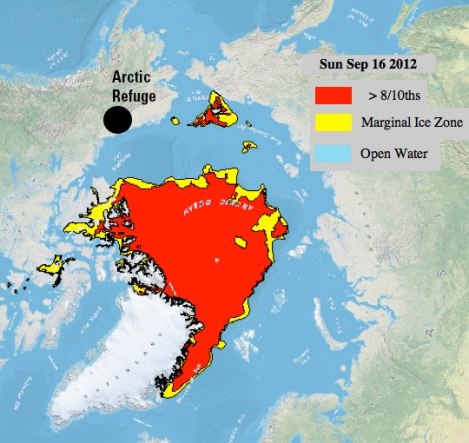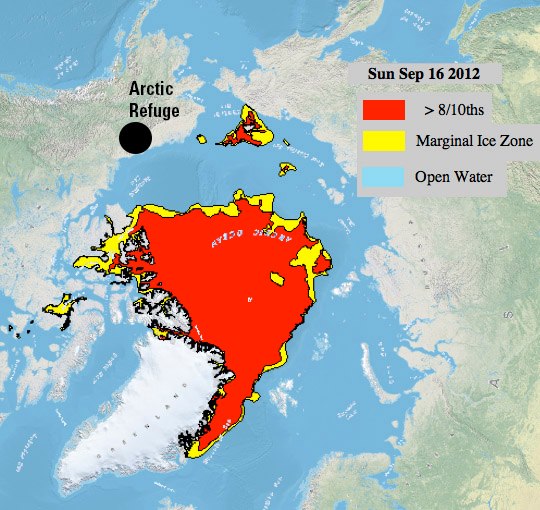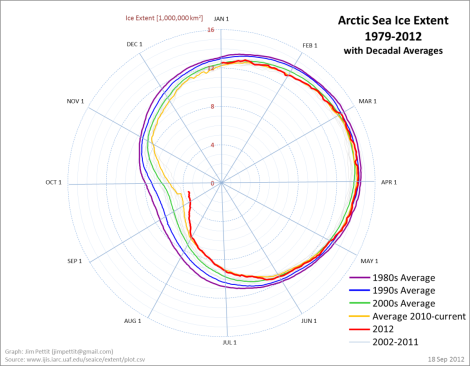The U.S. Fish and Wildlife Service posted an update on the Arctic National Wildlife Refuge’s Facebook page.

As of yesterday, there is almost no arctic sea ice in the Beaufort Sea offshore of Arctic Refuge. The closest ice is at least 300 miles from our shore. (NOAA and FWS)
As of writing, four people like this. You should not like this, people. This is why Facebook needs a thumbs-down button, to express disapproval at the warming climate and, with it, the melting Arctic ice that promises a chilly winter. Dislike.
The good news is that, according to the National Snow and Ice Data Center, Arctic sea ice has finished melting for the year. Ice cover hit its lowest point on Sept. 16, with only 3.41 million square kilometers of ice remaining — an area that would cover just over 40 percent of the continental U.S.
“We are now in uncharted territory,” said NSIDC Director Mark Serreze. “While we’ve long known that as the planet warms up, changes would be seen first and be most pronounced in the Arctic, few of us were prepared for how rapidly the changes would actually occur.”
Let’s take one last look at the Arctic ice death spiral for the year.
Not going down the drain in 2012 — unless this footnote on the NSIDC report comes into play: “Please note that this number is preliminary — changing weather conditions could still push the ice extent lower.”
Dislike.





